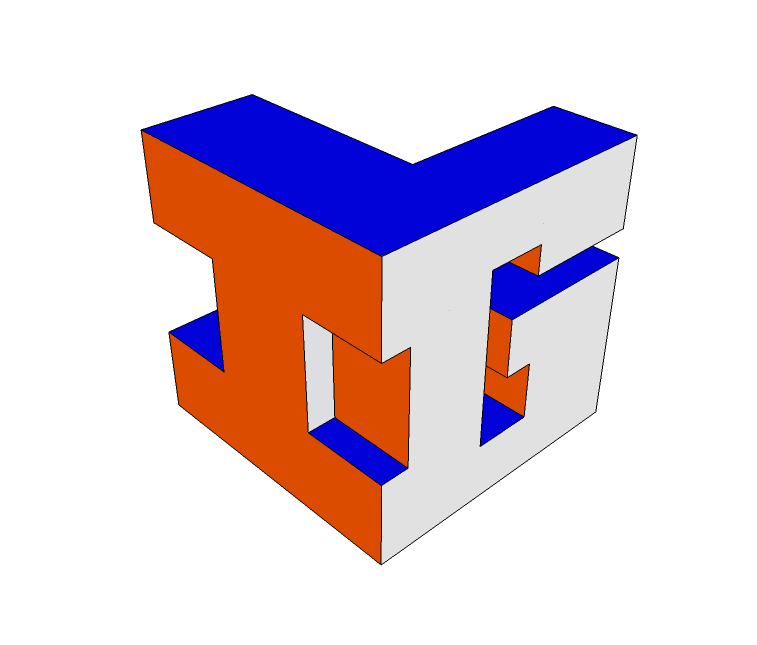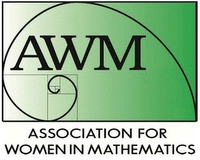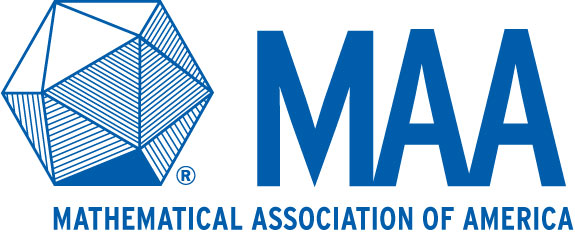The camp for rising 8th or 9th grade (age 12-15) students was June 10th to June 14th.
The camp for rising 9th through 12th (age 13-18) grade students was June 17th to June 21st.
Topics were:
Not your childhood tic-tac-toe: Low dimensional topology and games
Students will explore possible shapes of a two dimensional universe, with a strong focus on the topology of the torus, sphere, and Klein bottle. We will play connect four on a cylinder, tic-tac-toe on the torus, and hide-and-seek on the non-oriented Klein bottle. Students will discover the theory of games, asking questions like “how many first moves are there in torus tic-tac-toe?” or “does the ‘it’ player have an unfair advantage in Klein bottle hide-and-seek?”
Making and breaking codes: Cryptography
Students will learn how to write and read secret messages using modular arithmetic or “clock math.” We will practice sending each other messages with each method, as well as answer questions like “how can you read a message without knowing the code?” and “how can you share a code without other people being able to read the message?”
Number theory and cryptology
Number theory is a broad subject that looks at why natural numbers behave the way they do. Many ancient societies used math that is now considered number theory to find the side lengths of right triangles. Despite the seeming simplicity of the natural numbers, this is still an area of active research. SIM Camp students will look at some basic properties of prime numbers and how they can be used to encrypt messages. This is a high school version of the cryptology course.
When a straight line curves: The geometries of space
Students will explore questions such as, “What happens when the angles of a triangle no longer sum to 180 degrees?” or “what does it mean to be a straight line?”. Students will imagine living in hyperbolic or spherical space, discovering for themselves the challenges presented by these unfamiliar geometries. By the end of the week, we will understand tilings and students will create their own hyperbolic and spherical art to take home.
About Us
SIM Camp Epsilon:
Not your childhood tic-tac-toe: Low dimensional topology and games
- Instructor: Fernando Roman-Garcia
- Assistant Instructor: Elizabeth Ayala
Making and breaking codes: Cryptography
- Instructor: Grace Jaffe
- Assistant Instructor: Jack Gentile
SIM Camp Delta
Number theory and cryptology
- Instructor: Grace Jaffe
- Assistant Instructor: Jack Gentile
When a straight line curves: The geometries of space.
- Instructor: Fernando Roman-Garcia
- Assistant Instructor: Elizabeth Ayala
Organizers
Alexi Block Gorman was an assistant director for the 2019 SIM Camp, and was an instructor for SIM Camps Delta and Omega in 2018.
Chi Huynh was the program coordinator for the 2019 SIM Camp.
Simone Sisneros-Thiry was an assistant director for the 2019 SIM Camp, and was an assistant program coordinator for the 2018 SIM Camp, as well as the program coordinator in 2016 and 2017.
Jenna Zomback was the director for the 2019 SIM Camp, and was the instructor/ assistant program coordinator in 2018.
Jennifer McNeilly was a faculty organizer at SIM Camp 2019. She has been Director of the Math Merit Program for Emerging Scholars since 2001. She has won multiple teaching awards, primarily teaching courses at the precalculus level. She is also an advisor to the math majors in the secondary education program.
Jeremy Tyson was a faculty organizer at SIM Camp 2019. He is a Professor and Chair of the University of Illinois at Urbana-Champaign Department of Mathematics.
Philipp Hieronymi was a faculty organizer at SIM Camp 2019. He is a Professor in the University of Illinois at Urbana-Champaign Department of Mathematics and director of the Illinois Geometry Lab.
SPONSORS
Support is provided by:
- Office of Public Engagement, University of Illinois for a Public Engagement Grant
- Department of Mathematics, University of Illinois
- Illinois Geometry Lab, University of Illinois
- Association for Women in Mathematics, University of Illinois
- Dolciani Mathematics Enrichment Grant , Mathematical Association of America
- National Science Foundation , Grant Number DMS-1449269
![]()




Please consider donating to the Department of Mathematics Outreach fund, which supports our Summer Illinois Math camp and other outreach initiatives. Your support helps our department fulfill Illinois’s land grant mission.
Any opinions, findings, and conclusions or recommendations expressed in this material are those of the author(s) and do not necessarily reflect the views of the National Science Foundation. This material is based upon work supported by the National Science Foundation under Grant Number DMS-1449269.